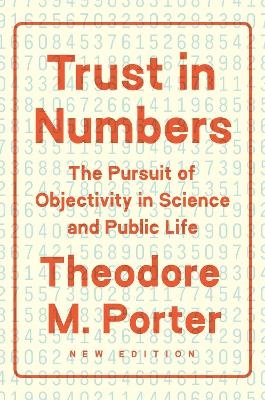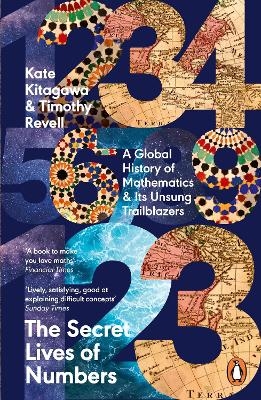
Trust in Numbers
The Pursuit of Objectivity in Science and Public Life
Seiten
2020
|
New edition
Princeton University Press (Verlag)
978-0-691-20841-1 (ISBN)
Princeton University Press (Verlag)
978-0-691-20841-1 (ISBN)
A foundational work on historical and social studies of quantification.
A foundational work on historical and social studies of quantification
What accounts for the prestige of quantitative methods? The usual answer is that quantification is desirable in social investigation as a result of its successes in science. Trust in Numbers questions whether such success in the study of stars, molecules, or cells should be an attractive model for research on human societies, and examines why the natural sciences are highly quantitative in the first place. Theodore Porter argues that a better understanding of the attractions of quantification in business, government, and social research brings a fresh perspective to its role in psychology, physics, and medicine. Quantitative rigor is not inherent in science but arises from political and social pressures, and objectivity derives its impetus from cultural contexts. In a new preface, the author sheds light on the current infatuation with quantitative methods, particularly at the intersection of science and bureaucracy.
A foundational work on historical and social studies of quantification
What accounts for the prestige of quantitative methods? The usual answer is that quantification is desirable in social investigation as a result of its successes in science. Trust in Numbers questions whether such success in the study of stars, molecules, or cells should be an attractive model for research on human societies, and examines why the natural sciences are highly quantitative in the first place. Theodore Porter argues that a better understanding of the attractions of quantification in business, government, and social research brings a fresh perspective to its role in psychology, physics, and medicine. Quantitative rigor is not inherent in science but arises from political and social pressures, and objectivity derives its impetus from cultural contexts. In a new preface, the author sheds light on the current infatuation with quantitative methods, particularly at the intersection of science and bureaucracy.
Theodore M. Porter is Distinguished Professor of History at the University of California, Los Angeles. His books include The Rise of Statistical Thinking and Genetics in the Madhouse (both Princeton).
| Erscheinungsdatum | 21.08.2020 |
|---|---|
| Verlagsort | New Jersey |
| Sprache | englisch |
| Maße | 156 x 235 mm |
| Themenwelt | Mathematik / Informatik ► Mathematik ► Geschichte der Mathematik |
| Naturwissenschaften | |
| ISBN-10 | 0-691-20841-7 / 0691208417 |
| ISBN-13 | 978-0-691-20841-1 / 9780691208411 |
| Zustand | Neuware |
| Haben Sie eine Frage zum Produkt? |
Mehr entdecken
aus dem Bereich
aus dem Bereich
Das Jahrhundert, in dem die Mathematik sich neu erfand. 1870-1970
Buch | Hardcover (2022)
Heyne (Verlag)
22,00 €
a secret world of intuition and curiosity
Buch | Hardcover (2024)
Yale University Press (Verlag)
32,70 €
a global history of Mathematics & its Unsung Trailblazers
Buch | Softcover (2024)
Penguin Books Ltd (Verlag)
16,20 €


